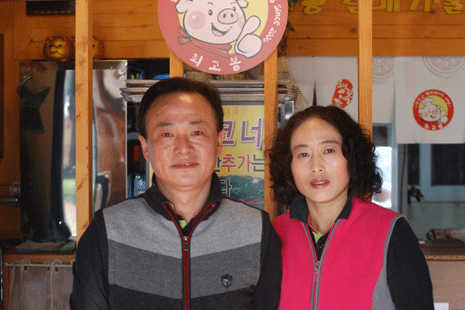
Park Cheol-jong had little idea of how he would make a living following his release from prison six years ago. After spending the first year failing to secure a job, he admits being tempted to commit another crime.
But he read two things in prison which he says saved him from what could have been his fifth conviction for theft: The Bible, which he read seven times behind bars, and a newspaper article about a Church-run bank which offers micro-credit loans to ex-convicts.
Park himself professes no religious affiliation. The Joy and Hope Bank, on the other hand, is run by Seoul archdiocese.
“Without the bank’s help I might have gone back to prison,” says Park.
Instead Park, now 52 and married with a child, was able to borrow 20 million won (US$18,700) without any collateral at an annual interest rate of just two percent following a 60-hour training course by the bank over two weeks. He used the money to open a restaurant.
Four years later, his business employs five other people and has grown steadily to record an annual sales turnover of between 300 and 400 million won.
“I am really grateful to the bank’s people who guided me on how to run the restaurant from the very beginning,” says Park. “And I am also very proud of myself.”
Cases like his are not common in South Korea, says Lee Tai-sik, an official at the Ministry of Justice, who notes that “22.2 percent of ex-convicts return to prison within three years of their release,” or more than 5,000 of the 25,000 prisoners released each year.
Those who manage to get support to find a job or start a business “seldom commit crimes again,” he adds.
Typically it’s a vicious cycle, says the general manager of Joy and Hope Bank, Joseph Hwang Bong-sub.
On the one hand, the more numerous and serious the convictions, the harder it is to find an employer prepared to take the risk, he says, and the fewer chances people have, the more likely they are to commit a crime again.
“They need to have a stable job and to experience the hospitality of society,” says Hwang.
Joy and Hope Bank conducts a business training course for ex-convicts twice every year which teaches them skills like how to do market research and how to re-establish human relationships.
Inspired by Grameen Bank in Bangladesh, a project which won founder Muhammad Yunus the Nobel Peace Prize in 2006, Joy and Hope Bank has 7,000 donors following its debut in 2008 with 500 million won in start-up capital. Since then it has lent two billion won to 132 ex-convicts.
“Only four went back to prison,” says Hwang, although 36 borrowers saw their businesses fail and have been unable to repay their loans, he adds.
Meanwhile, Park says he would like to return to prison one day, but only to share his experiences with other inmates “to help them to overcome the temptation to resort to crime and re-establish themselves in society.”


